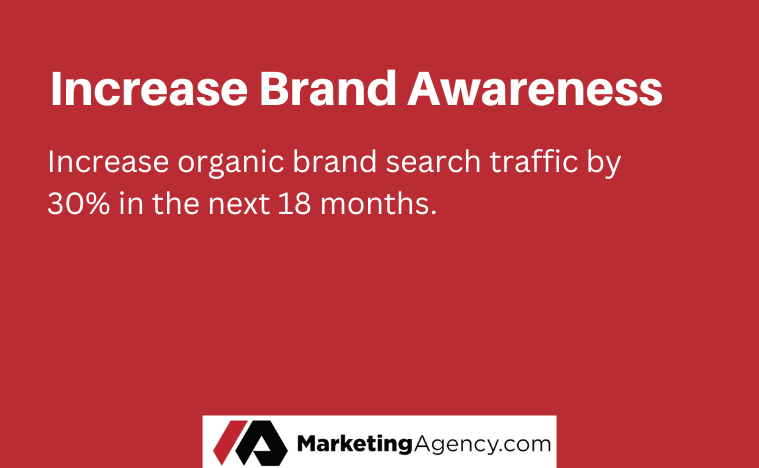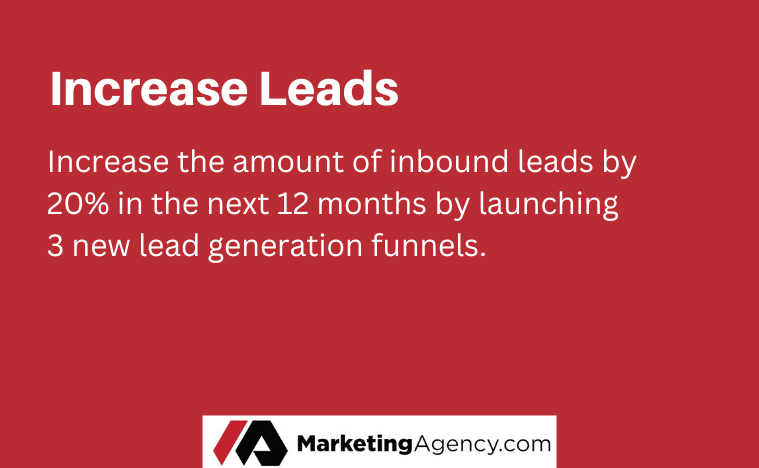Featured
The Complete Guide To Marketing Objectives
Do you know what your marketing objectives are? If not, you’re not alone. A lot of business owners don’t have a clear plan for what they want to achieve with their marketing efforts. But that’s a mistake – without defined objectives, it’s tough to measure success or make adjustments along the way.
In fact, According to a survey from Co-Schedule, organized marketers are 674% more likely to report success than their peers. In this article, we’ll discuss everything you need to know about marketing objectives and how they work.
What Are Marketing Objectives?
Marketing objectives are measurable goals that help businesses achieve their desired outcomes. They are typically created by CMOs (Chief Marketing Officers) or CEOs in order to give direction for marketing efforts throughout the organization.
The goal of setting these objectives is to focus on specific areas of improvement for the company. For example, increasing awareness about a product or service or boosting sales figures.
It is important for businesses to set realistic goals that will be achievable with the resources available at hand.
How Do Marketing Objectives Work?
Marketing objectives work in tandem with other components of a business’s overall strategy such as customer service, product development, advertising campaigns, and more.
By measuring progress towards achieving each objective over time, businesses can refine their strategies accordingly in order to ensure maximum success.
Additionally, analyzing customer data allows marketers to gain insight into how customers view their products and services. Knowing this can help adjust their approach if needed.
Marketing Objectives vs Marketing Goals
Next, marketing objectives and marketing goals are two important concepts in the world of marketing. Marketing objectives are the overall goals that a company hopes to achieve through its marketing efforts.
Marketing goals, on the other hand, are the specific targets that a company sets in order to achieve its marketing objectives.
For example, a company’s marketing objective might be to increase brand awareness among consumers.
A Marketing goal might be to increase the number of social media followers by 20% over the course of six months. As you can see, marketing objectives provide a big-picture view, while marketing goals provide a more targeted approach.
Why Are Marketing Objectives So Important?
Marketing objectives are important because they provide a clear and concise guide for marketers to follow as they work to achieve their marketing goals. Marketing objectives should be specific, measurable, achievable, relevant, and time-bound.
By following these guidelines, marketers can ensure that their efforts are focused on the most important tasks and that they are making progress toward their goals.
Marketing objectives also help to keep everyone on the same page, from the CEO to the junior analyst. By clearly defining the objectives of the marketing campaign, everyone can understand what needs to be done and why it is important.
Marketing objectives are therefore essential for ensuring that marketing campaigns are successful.
[Read More] How To Market Your Business? 11 Top Marketing Strategies To Use Now
What Are The Key Elements Of Effective Marketing Objectives?
Marketing objectives are the specific, measurable, attainable, relevant, and time-bound goals that you set for your marketing campaigns. Marketing objectives should be aligned with your business goals.
SMART goal setting is a popular method for setting marketing objectives. SMART is an acronym that stands for Specific, Measurable, Achievable, Relevant, and Time-bound.
- Specific: Your goal should be clearly defined so that it is easy to understand and measure progress. It should answer the questions: What do you want to accomplish? Why is this goal important? Who is involved? Where will this take place? When will this happen?
- Measurable: You must be able to track your progress towards achieving the goal. This could include metrics like the number of visitors to a website or the number of sales per month. Having measurable goals allows you to monitor your progress, stay motivated, and make adjustments as necessary.
- Achievable: Your goals should be realistic and achievable within a reasonable timeframe. If your goals are set too high or too low then they can become demotivating versus motivating. Make sure your goals are challenging enough but still attainable within the specified timeline.
- Relevant: Goals should align with the objectives of your organization and fit within its overall mission statement or vision for the future. Make sure that your goal is relevant and connected to other goals in order for them all to work together effectively toward achieving success.
- Time-Bound: Your goals should have a timeline associated with them in order for them to remain relevant throughout the process of achievement. By setting deadlines for yourself or milestones along the way, it becomes easier to focus on reaching these goals. Instead of getting sidetracked by other tasks or activities that may seem more pressing at first glance but don’t necessarily contribute towards long-term success or growth objectives.
Marketing Objectives Examples
Increase Brand Awareness
One common marketing objective is to increase brand awareness. Generally, businesses will use numerous marketing activities such as advertising, public relations, and influence marketing. Brand awareness is important as it helps to build trust and credibility with potential customers.
Increase Leads
Another common marketing objective is to generate leads. Businesses accomplish this through activities such as direct mail, trade shows, and online marketing. Lead generation is important as it helps to bring in new potential customers that can be converted into sales.
Increase Sales
A third common marketing objective is to increase sales. Businesses will use activities such as promotions, pricing strategies, and product placement. Increasing sales is important as it helps to grow the business and generate revenue.
Increase Website Traffic
Another common marketing objective is to increase website traffic. Website traffic refers to the number of visitors that come to your website. To increase website traffic you can use a variety of marketing activities, such as search engine optimization (SEO), social media marketing, or pay-per-click (PPC) advertising.
[Read More] 5 Must Read Tips On How To Get Into Affiliate Marketing
5 Simple Steps To Creating Marketing Objectives
Step #1: Define your target market
The first step in creating marketing objectives is to define your target market. This includes identifying the demographics of your ideal customer, such as their age, gender, income, location, etc. Once you have a good understanding of who your target market is, you can begin to create objectives that are specific and measurable.
Step #2: Set realistic goals
It is important to set realistic goals for your marketing campaign. If your goal is to increase sales by 20% in the next quarter, be sure to set a budget and timeline that will allow you to reach this goal. Additionally, make sure that your goals are specific and measurable so that you can track your progress and determine whether or not you are successful.
Step #3: Develop a marketing strategy
Once you have defined your target market and set realistic goals, you need to develop a marketing strategy. This includes deciding which marketing channels you will use to reach your target market, such as television, radio, print, online, etc. Additionally, you will need to create a message that resonates with your target market and drives them to take action.
Step #4: Implement your plan
After you have developed your marketing strategy, it is time to implement your plan. This includes creating all of the necessary materials, such as website content, advertisements, brochures, etc. Additionally, you will need to allocate a budget for each channel that you plan on using. Once everything is in place, you can launch your marketing campaign and start working towards achieving your objectives.
Step #5: Evaluate your results
Once your marketing campaign has ended, it is important to evaluate the results in order to determine whether or not it was successful. This includes looking at factors such as sales figures, web traffic statistics, customer feedback, etc. By evaluating the results of your campaign, you can determine what worked well and what could be improved upon for future campaigns.
[Read More] What Is CPM In Marketing?
Bottom Line
In conclusion, marketing objectives are an essential part of any successful business strategy. This is because they provide direction and allow organizations to measure progress toward achieving desired outcomes. Such as increased awareness or greater sales figures.
By setting measurable goals and tracking performance over time with analytics tools, executives can make adjustments quickly in order to maximize success across all departments within an organization.
Ultimately, having clear marketing objectives ensures that businesses stay focused on making meaningful improvements. All while remaining flexible enough so they don’t become stuck in old habits or outdated strategies.
With this knowledge about marketing objectives under your belt, you now have the tools necessary for success!
Brett Heimann is a marketing & advertising professional with 10 years of experience. He's the founder of MarketingAgency.com and contributes to other publications such as; Entrepreneur, Thrive Global, and StockMarket.com. His passion for digital marketing began after graduating with a B.S.B.A in business administration and finance in 2013. After completing college, he went on to become an entrepreneur in the marketing and finance space. Brett loves the ability to deliver to his readers engaging and educational content that can be easily consumed by the reader. He enjoys writing about a wide variety of marketing topics such as; Search Engine Optimization (SEO), Paid Advertising (PPC), E-Commerce, and Lead Generation For SMBs to name a few. Brett, a South Florida native, enjoys spending time with his wife and two sons outdoors and is a big basketball and MMA fan.
















